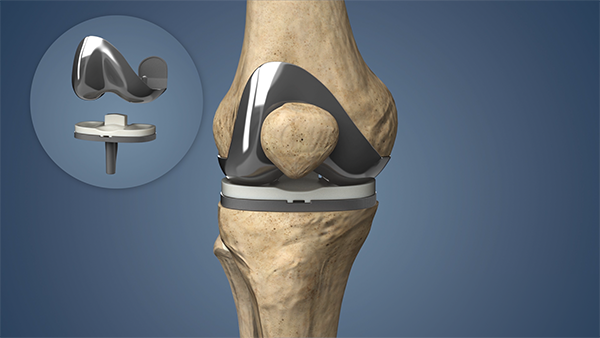Why Do People Need Knee Replacement Surgery? Causes and Risk Factors
Knee pain can affect people of all ages, but when it begins to interfere with your daily activities like walking, climbing stairs, or even sleeping, it may be time to consider a more permanent solution—knee replacement surgery. But why do people reach this point? What actually causes the need for this surgery?
At Ginni Devi Orthopedic Hospital in Jaipur, we believe that patient education is essential for better health outcomes. In this blog, we’ll explore the major causes and risk factors that lead to knee replacement surgery and help you understand when it might be the right choice for you or your loved one.
What Is Knee Replacement Surgery?
Knee replacement surgery, also known as knee arthroplasty, involves replacing the damaged or diseased parts of the knee joint with artificial components. This helps restore function, relieve pain, and improve the quality of life for individuals suffering from severe knee problems.
Common Causes of Knee Replacement Surgery
1. Osteoarthritis
The most common reason for knee replacement is osteoarthritis, a degenerative joint disease. Over time, the cartilage that cushions the bones in the knee joint wears away, causing bones to rub against each other. This leads to pain, stiffness, swelling, and reduced mobility. Osteoarthritis typically affects people over the age of 50, but it can also occur earlier in some cases.
2. Rheumatoid Arthritis
Unlike osteoarthritis, rheumatoid arthritis is an autoimmune condition. It causes inflammation in the synovial membrane that lines the knee joint, leading to pain and damage. Chronic inflammation from this condition can lead to joint deformities and eventually necessitate knee replacement.
3. Post-Traumatic Arthritis
This condition occurs after a serious knee injury, such as a fracture, ligament tear, or meniscus damage. Even with treatment, the injury can lead to long-term cartilage wear and joint instability, eventually requiring surgical intervention.
4. Deformities and Abnormal Bone Growth
People with bowed legs or knock knees may develop uneven wear and tear in the knee joint over time. If this results in chronic pain or mobility issues, a knee replacement might be the recommended treatment.
5. Previous Knee Surgery or Implants
Individuals who have had prior surgeries like meniscectomy, ligament reconstruction, or older joint implants may develop complications or secondary arthritis, leading to the need for a knee replacement.
Risk Factors That Increase the Need for Knee Replacement
1. Age
As you grow older, the wear and tear on your joints increase. People over 60 are at the highest risk, though younger individuals with advanced joint damage may also require surgery.
2. Obesity
Excess weight puts extra pressure on your knee joints, accelerating the breakdown of cartilage. Obese individuals are more likely to develop arthritis and need surgical intervention earlier.
3. Genetics
Some people may have a genetic predisposition to arthritis or weak joint structures, making them more likely to need a knee replacement in their lifetime.
4. Lifestyle and Occupation
Jobs that involve heavy lifting, squatting, or standing for long periods can put a strain on the knees. Similarly, athletes may face a higher risk of injuries that can result in long-term knee damage.
5. Lack of Physical Activity
Sedentary lifestyles can weaken muscles that support the knee joint. This lack of support can worsen joint conditions and increase the likelihood of needing a knee replacement.
When Should You Consider Knee Replacement Surgery?
Here are some signs that indicate it might be time to consider surgery:
- Chronic knee pain that does not improve with medication or therapy
- Difficulty performing everyday tasks like walking, standing, or climbing stairs
- Stiffness that limits your ability to bend or straighten your knee
- Sleep disruption due to pain
- Swelling that does not go away
- Ineffectiveness of non-surgical treatments like injections, braces, or physiotherapy
If you’re experiencing any of these symptoms, a consultation with the Best Knee Replacement Surgeon in Jaipur at Ginni Devi Orthopedic Hospital can help you explore your options.
Why Choose Ginni Devi Orthopedic Hospital in Jaipur?
At Ginni Devi Hospital, we pride ourselves on being a leading Orthopedic Hospital in Jaipur with a team of highly experienced surgeons, state-of-the-art facilities, and a patient-first approach. Our commitment to orthopedic excellence has made us a trusted name in joint replacement surgeries.
Here’s why patients choose us:
- Experienced Surgeons: Our specialists are regarded as some of the Best Knee Replacement Surgeons in Jaipur, known for their precision and success rates.
- Advanced Technology: We use cutting-edge diagnostic and surgical tools for faster recovery and minimal complications.
- Personalized Care: From diagnosis to rehabilitation, our team ensures every patient receives personalized attention and care.
- Comprehensive Rehabilitation: We provide in-house physiotherapy and rehab support to speed up your recovery and restore mobility.
Final Thoughts
Knee replacement surgery is not the first line of treatment, but it becomes necessary when pain and joint damage start affecting your quality of life. Conditions like osteoarthritis, rheumatoid arthritis, and post-traumatic injuries are the most common causes.
Understanding the risk factors and recognizing the early signs of joint degeneration can help you seek timely medical advice. If you are looking for expert consultation and world-class treatment, trust the Best Knee Replacement Surgeon in Jaipur at Ginni Devi Orthopedic Hospital in Jaipur for compassionate and expert care.

